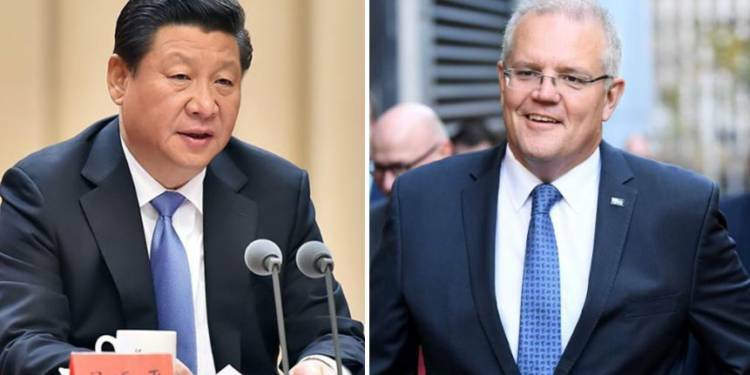China has left no stone unturned in trying to hurt Australia in any way possible. It has broken the unsaid rule that no partner of China should break, that is, to never criticise the middle kingdom aka China or its emperor Xi Jinping. As Canberra broke this sacred law, Beijing has been hell-bent on making its economy bleed in all sorts of ways. However, in its effort to inflict injury on the Australians, China has unintendedly inflicted some harm on itself as the coal shortages are hitting hard and the country cannot afford to lose the precious supply of Australian Iron Ore.
China was to try the Australian writer Yang Hengjun on the charges of espionage and now they have delayed the trial for three months, which stands postponed until April 9, while the friend of the accused, Feng Chongyi told South China Morning Post that Chinese authorities had explained the trial was postponed until April 9 due to the “serious and complicated” nature of the case. However, if one looks at the larger geopolitical expanse, then the most plausible reason is that the Chinese have realised the cost to benefit analysis and it will be futile for Beijing to push Canberra beyond reproach.
China cannot lose the source of their economic cushion, that is the steel industry. And as it is dependent on the constant supply of Australian Iron Ore, it just cannot go beyond the threshold. Feng said Yang, who faces possible life in prison, had last received consular assistance from Australian officials on December 17.
This gives further credence to the fact that the Chinese are looking for ways to placate Australia and get out of the mess that they have enmeshed themselves into. The delay in the trial means that China is no longer finding it possible to carry on its policy of bleeding Australia when the effect is more disastrous for the Chinese themselves.
People in China are being rationed electricity and their daily activities are being governed to a very minute level, so much so that provincial government agencies south of Shanghai were ordered to turn on the heat only if the temperature falls below 3 degree Celsius and even then, the thermostat can only be turned up to 16 degree Celsius and not beyond that. This is more than enough of a proof to establish that China is facing acute coal shortages in its thermal power plants and as winter arrives it is not able to manage the plummeting coal supply.
Not only this but the only saving grace that is, Steel industry is keeping the Chinese economy afloat and if Canberra stops the supply of Australian Iron Ore, the Steel industry too will bleed and the Chinese will be left red-faced and it will not be pleasant. China isn’t going to impose any tariff or other trade barriers on Australian iron ore, because there is simply no other alternative that can meet China’s rising demand. Nevertheless, it is time for Canberra to take its revenge which is scaring the Chinese. Australian miners can keep slowing down iron ore exports to China and push the mineral’s price even further to punish Beijing.
Yang was detained in January 2019, when he arrived in China due to visa issues. He is said to be a former Chinese Foreign Ministry employee and has Australian citizenship. As per reports, Prime Minister Scott Morrison has already said that Australia is pushing for a transparent, fair and just process in Yang’s case.
These things and the thought of Australian revenge have become China’s nightmares and this is the reason why the Chinese are trying to placate them. This step of delaying the Australian writer’s trial who is accused of spying has to be seen in the sphere of friendly gestures and an attempt to reach a normalisation of relations among the two countries.
